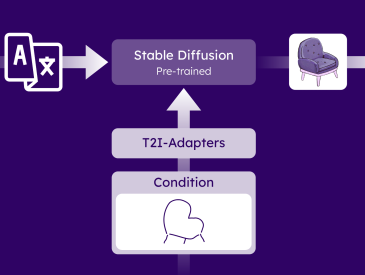Meta AI has made a significant breakthrough in the field of AI research with the introduction of their groundbreaking dataset. This dataset, comprising face-to-face video clips, is a comprehensive collection that encompasses a diverse range of individuals from seven different countries. It provides developers with a valuable resource to evaluate the performance of their AI models across various demographic groups.
The dataset consists of a substantial number of video monologues recorded from 5,567 paid participants, accompanied by speech, visual, and demographic attribute data. Notably, it stands out as the first open-source compilation of videos gathered from multiple countries, incorporating detailed demographic information.
By obtaining explicit consent from participants, Meta AI ensures inclusivity and refrains from using personal information from platforms like Facebook or Instagram.
This dataset is particularly noteworthy in addressing challenges related to language barriers and physical diversity, areas that have historically posed difficulties for AI development. Additionally, Meta AI’s dataset includes comprehensive skin tone annotation scales, further enhancing its value for researchers.
Key Takeaways
- Meta AI has released a new dataset of face-to-face video clips, consisting of 26,467 video monologues recorded in seven countries.
- The dataset includes a broad range of diverse individuals, with 5,567 paid participants and accompanying speech, visual, and demographic attribute data.
- The dataset will help developers assess the performance of their AI models for different demographic groups, addressing concerns around language barriers and physical diversity.
- Meta’s dataset includes two different scales for skin tone annotation, enabling a clearer comparison with previous works and measurement based on the more inclusive Monk scale.
Today we’re open-sourcing Casual Conversations v2 — a consent-driven dataset of recorded monologues that includes ten self-provided & annotated categories which will enable researchers to evaluate fairness & robustness of AI models.
More details on this new dataset ⬇️
— AI at Meta (@AIatMeta) March 9, 2023
Meta AI’s Face-to-Face Video Dataset
The face-to-face video dataset released by Meta AI consists of 26,467 recorded monologues, providing a comprehensive resource for AI research. This dataset offers a diverse range of individuals, recorded in seven countries, making it a valuable tool for developers to assess the performance of their AI models across different demographic groups.
It includes 5,567 paid participants, along with accompanying speech, visual, and demographic attribute data. The dataset, known as Casual Conversations v2, is consent-driven and features ten self-provided and annotated categories. Researchers can utilize this dataset to evaluate the fairness and robustness of their AI models.
It is also worth noting that this is the first open-source dataset with videos collected from multiple countries using detailed demographic information.
Broad Range of Diverse Individuals
Meta AI’s groundbreaking dataset includes a diverse range of individuals from various backgrounds. This dataset aims to provide AI researchers with a comprehensive and representative sample of people from different demographic groups.
With 5,567 paid participants, the dataset offers a rich collection of speech, visual, and demographic attribute data. It consists of 26,467 video monologues recorded in seven countries, ensuring a global perspective.
Addressing concerns around language barriers and physical diversity, this dataset allows AI developers to assess the performance of their models across different languages and user attributes.
By including skin tone annotation scales, such as the Fitzpatrick scale and the Skin Tone scale, Meta AI enables a clearer comparison with previous works and ensures measurement based on more inclusive scales.
This diverse dataset fosters fairness, inclusivity, and robustness in AI research.
Assessing AI Model Performance
Assessing the performance of AI models is crucial for advancing AI research and development. With the release of Meta AI’s groundbreaking dataset, researchers now have a valuable resource to evaluate and improve the performance of their AI models.
The dataset, consisting of face-to-face video clips recorded in seven countries, offers a diverse range of individuals and demographic attributes. By using this dataset, developers can assess the fairness, robustness, and accuracy of their AI models for different demographic groups. This is particularly important in addressing concerns around language barriers and physical diversity, which have been problematic in some AI contexts.
The dataset also includes skin tone annotation scales, enabling a clearer comparison with previous works and measurement based on more inclusive scales.
Extensive Monologues From Seven Countries
With the inclusion of extensive monologues from seven countries, the dataset released by Meta AI provides researchers with a comprehensive understanding of diverse individuals’ experiences for assessing AI model performance.
This dataset consists of 26,467 video monologues recorded in India, Brazil, and five other countries. It features 5,567 paid participants, each accompanied by speech, visual, and demographic attribute data.
The dataset’s broad range of participants allows for a more accurate evaluation of AI model performance across different demographic groups. By including monologues from multiple countries, Meta AI addresses the need for cultural and linguistic diversity in AI research.
This dataset will undoubtedly contribute to the development of more inclusive and robust AI models by ensuring that researchers have access to a representative sample of individuals from various backgrounds.
Comprehensive Speech, Visual, and Demographic Data
The dataset released by Meta AI provides researchers with a comprehensive understanding of diverse individuals’ experiences by including extensive speech, visual, and demographic data.
This dataset, called Casual Conversations v2, consists of 26,467 video monologues recorded in seven countries, with 5,567 paid participants. It is the first open-source dataset that collects videos from multiple countries using detailed demographic information.
The dataset features speech data, allowing researchers to analyze linguistic patterns and speech characteristics. Additionally, visual data provides insights into facial expressions, gestures, and body language. The inclusion of demographic data enables researchers to analyze the impact of various demographic factors on AI performance.
This comprehensive dataset will allow AI researchers to develop more inclusive and robust models, ensuring that AI systems can accurately understand and respond to individuals from diverse backgrounds.
Consent-Driven Casual Conversations V2 Dataset
Meta AI’s groundbreaking dataset, Casual Conversations V2, is driven by consent and provides researchers with a comprehensive understanding of diverse individuals’ experiences through extensive speech, visual, and demographic data. This consent-driven dataset consists of recorded monologues, offering researchers the opportunity to evaluate the fairness and robustness of AI models. It includes ten self-provided and annotated categories, allowing for a granular analysis of the data.
What sets this dataset apart is that it is the first open-source dataset with videos collected from multiple countries, incorporating detailed demographic information. The dataset was obtained with direct permission from the participants, maximizing inclusion and ensuring no personal information from Facebook or Instagram is used.
With a focus on consent and inclusivity, this dataset equips AI researchers with a larger and more diverse pool of samples, addressing concerns around language barriers and physical diversity in AI development.
Evaluating Fairness and Robustness of AI Models
Evaluating the fairness and robustness of AI models is crucial in ensuring their effectiveness and reliability. Meta AI’s new dataset, Casual Conversations v2, provides researchers with the means to assess these aspects of AI models.
With videos collected from multiple countries and detailed demographic information, the dataset allows for the evaluation of fairness and robustness across diverse backgrounds. The inclusion of skin tone annotation scales, such as the six-tone Fitzpatrick scale and the 10-tone Skin Tone scale, further enhances the ability to measure fairness.
Granular List of Self-provided Categories
Featuring a granular list of self-provided categories, Meta AI’s groundbreaking dataset enhances AI research capabilities. This unique dataset, named Casual Conversations v2, offers researchers ten self-provided and annotated categories, providing a comprehensive and detailed analysis of various aspects of human interaction.
These categories allow AI researchers to evaluate the fairness and robustness of their models across different demographic groups and assess the performance of AI systems in real-world scenarios.
With 11 self-provided and annotated categories, Meta AI’s dataset sets a new standard for open-source datasets, ensuring that AI models are trained and tested with a diverse range of data.
Importance of Consent and Inclusion
The inclusion and consent of participants are key elements in Meta AI’s groundbreaking dataset, enhancing the ethical standards and reliability of AI research. Obtaining direct permission from participants ensures that their content is included in the dataset, maximizing inclusion.
It is important to note that the dataset does not use personal information from platforms like Facebook or Instagram.
By providing AI researchers with more samples of people from diverse backgrounds, the dataset addresses concerns around language barriers and physical diversity. This is crucial as some AI tools have failed to recognize certain user attributes and have been labeled as racist.
The dataset also includes skin tone annotation using two different scales, allowing for clearer comparisons with previous works and enabling measurement based on the more inclusive Monk scale.
Addressing Language Barriers and Physical Diversity
To ensure comprehensive AI development, Meta AI’s groundbreaking dataset addresses concerns around language barriers and physical diversity, aiming to rectify limitations in training models and prevent the replication of racist biases.
Language barriers have been a significant challenge in AI, as some tools have struggled to recognize certain user attributes due to limited training data. This has resulted in biased outcomes and exclusion of individuals from diverse linguistic backgrounds.
Additionally, physical diversity has posed problems in AI contexts, with some tools failing to accurately identify and cater to the needs of individuals with different physical attributes.
Source: https://ai.meta.com/blog/ego-exo4d-video-learning-perception/
Get ready to dive into a world of AI news, reviews, and tips at Wicked Sciences! If you’ve been searching the internet for the latest insights on artificial intelligence, look no further. We understand that staying up to date with the ever-evolving field of AI can be a challenge, but Wicked Science is here to make it easier. Our website is packed with captivating articles and informative content that will keep you informed about the latest trends, breakthroughs, and applications in the world of AI. Whether you’re a seasoned AI enthusiast or just starting your journey, Wicked Science is your go-to destination for all things AI. Discover more by visiting our website today and unlock a world of fascinating AI knowledge.





